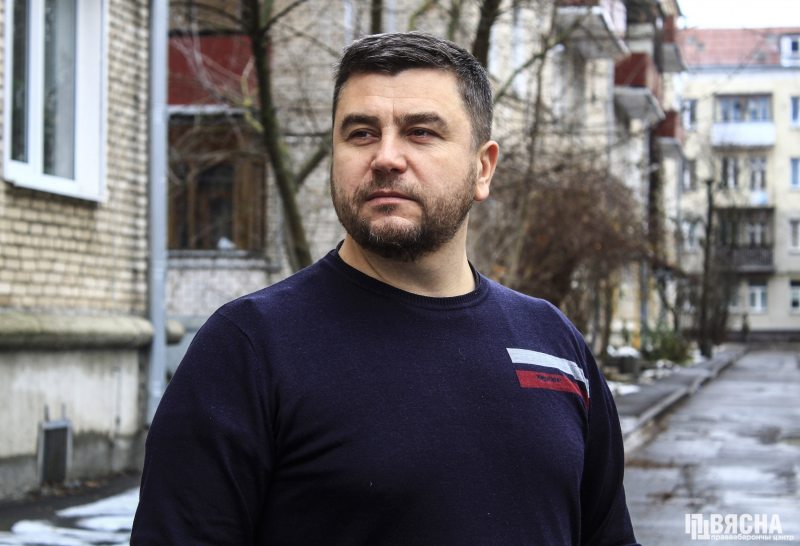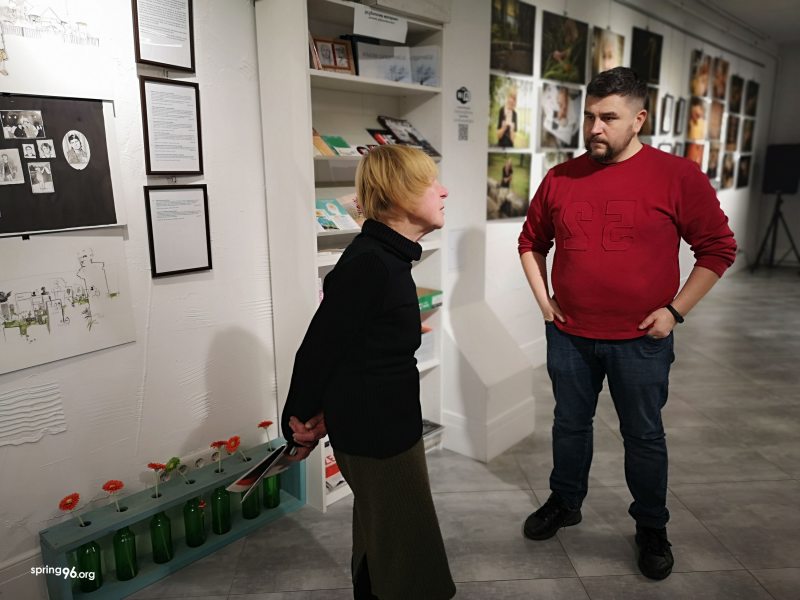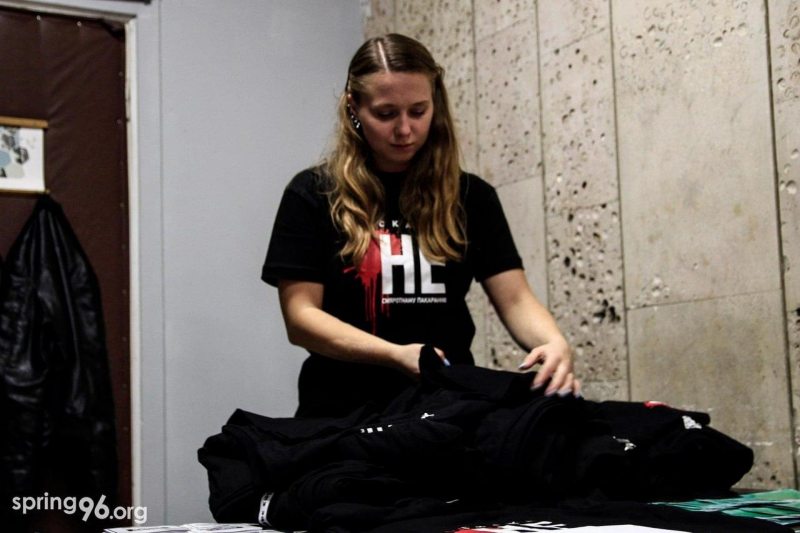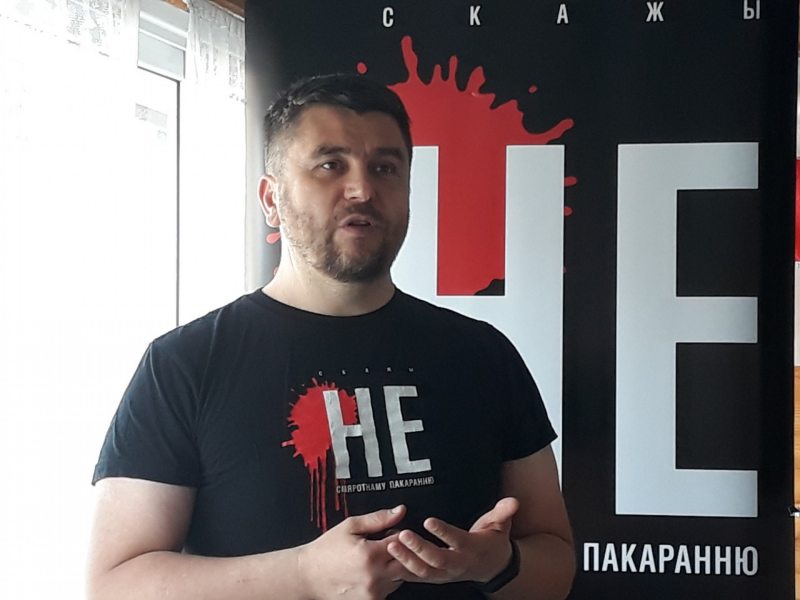Andrei Paluda: “I hope there will be no more death sentences”
World Day Against The Death Penalty is observed annually on October 10. Belarus is still the only country in Europe where capital punishment is applied. We have talked to Human rights defenders against the death penalty campaign coordinator Andrei Paluda about the evolution of the death penalty perception and the highlights of the campaign.
Relevance to Belarus remains

- Human rights defender Andrei Paluda fights for the abolition of the death penalty in Belarus, the last country in Europe to use this form of punishment. | spring96.org
Andrei Paluda emphasizes that the death penalty issue remains relevant to this day, despite the large-scale reprisals in Belarus, the crackdown on human rights, and the growing number of political prisoners:
“One may think that because of the current context, there are more urgent topics. But I am sure we should talk about it even now. After all, the death penalty has always been an indicator of the human rights situation in our country.And we, human rights defenders, have always said that the death penalty is an important and urgent problem that must be addressed”.
Capital punishment and the war
The death penalty has re-emerged as a topic in the context of a full-scale war in Ukraine, Andrei Paluda notes:
“The authorities of these formations, which call themselves the Donetsk People's Republic, have announced that they are lifting the moratorium on the death penalty. By the way, they also execute people by shooting as in Belarus.”
Amendments to legislation
On 27 April 2022, the House of Representatives of the National Assembly passed in two readings a bill that introduces the death penalty for “attempts to carry out an act of terrorism.” Andrei Paluda notes that this is very serious:
“Very often in the death penalty discussions that we have had a lot, people have said: 'It only affects murderers and psychopaths, and generally the dregs of society. And we said, no, it can affect everyone. [...]
The death penalty—as long as it exists, as long as the procedure itself is in place, as long as it is working, as long as it is implemented into national law, as long as it is applied in practice—can be used against any person, including an innocent person. And now we see how the legislation has degraded and what the state's efforts to retain the death penalty have led to. The pool of people to whom the death penalty can be imposed has expanded very dramatically at the legislative level.”
Denunciation of the Optional Protocol
The Belarusian authorities also plan to denounce the Optional Protocol to the International Covenant on Civil and Political Rights (ICCPR). It is this Protocol that enables Belarusians to submit individual applications to the UN Human Rights Committee and thus appeal against the actions of their state at the international level.

- Шт 2022, the UN Human Rights Committee recognized rights violations by the Belarusian authorities toward Tamara Selyun, the mother of the executed Pavel Selyun. Andrei Paluda represented her.
Andrei Paluda represented Belarusians on death row in appeals to the UN Human Rights Council. Such appeals were filed under the special procedure in which the UN HRC introduces urgent measures and sends a request to Belarus not to carry out the execution until the Committee had considered the case of that person. In reality, however, executions were still carried out despite the ban.
“Thus, it is bad when this mechanism will not be available (due to the denunciation of the Optional Protocol—ed.)”, said Andrei Paluda. “But at the same time, I cannot say that it was such an instrument that saved the lives of those sentenced to death.Alas, its effectiveness was and still is insufficient where Belarus is concerned.”
Public perception is changing
Andrei Paluda names the pardon of the Kostseu brothers as the most significant event of the campaign for him personally.
On January 10, 2020 brothers Illia and Stanislau Kostseu were sentenced to death for the murder of their next-door neighbor. On May 22, 2020, the Supreme Court upheld the death sentences. In April 2021, human rights defenders learned that the Kostseu brothers were pardoned.
“It is important to say about the reaction of society. There were no mass protests of people against the pardon. And this is after the reaction to the death sentence that we saw at the time it was handed down: people were cheering and clapping their hands as they heard it. This is a big deal.”
Jailed abolitionists in Belarus

- Marfa Rabkova helped to organize the Rock for Life festival against the death penalty. | spring96.org
Andrei Paluda notes that in the last year several Belarusian abolitionists, those who demand the abolition of the death penalty, have been put behind bars.
“People who were directly related to the campaign against the death penalty, took a very active part in it, very often inspired a lot of ideas and helped in its implementation, ended up in jail. This is Leanid Sudalenka who elaborated on an appeal to the UN Human Rights Committee on the Hariunou case in the campaign. This is Marfa Rabkova, the coordinator of Viasna volunteer service, who contributed to the organization of our events. This is Valiantsin Stefanovic, a man with whom we did a lot together for the abolitionist movement. And Ales Bialiatski.
All of these people are outstanding representatives of the abolitionist movement not only in Belarus, but also internationally.”
Hopes for the future
“To date, we have information neither whether Viktar Skrundzik is still alive nor whether Viktar Serhil has been already executed. We have learned that the death sentence against Viktar Paulau was carried out. The Kostseu brothers are serving a life sentence”, Andrei Paluda outlines the current situation with the death penalty. “I keep my fingers crossed, but we have not heard of any new cases of the death penalty for a long time. We hope there will not be any. At least, after the pardon of Kostseu brothers, there have been no new death sentences. Naturally, we understand, that given the situation with access to information in our country, anything is possible.
I hope we will not get any more news about death sentences.And instead, we will get news that there is no longer the death penalty in Belarus— or at least there is a moratorium as a first step.”


